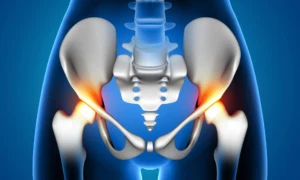Antibody developability assessment plays a critical role in the development of therapeutic antibodies, ensuring that candidates progress through the drug development process efficiently and effectively. At Nona Biopharma, we recognize the significance of this process in maximizing the success of antibody-based therapies. Through rigorous assessment and optimization, we aim to enhance the developability of our antibodies, ultimately improving patient outcomes and advancing healthcare.
Antibody developability assessment involves the evaluation of various properties of antibodies to determine their suitability for further development. This includes assessing factors such as stability, solubility, aggregation propensity, immunogenicity, and manufacturability. By thoroughly characterizing these attributes early in the development process, researchers can identify potential challenges and optimize antibody candidates to improve their chances of success.
One key aspect of antibody developability assessment is stability testing. Antibodies must remain stable under a variety of conditions, including temperature fluctuations and exposure to proteases and other degradative enzymes. Stability testing helps identify antibodies that are prone to degradation and allows researchers to optimize their formulations to enhance stability.
Solubility is another important consideration in antibody developability assessment. Insoluble antibodies can present challenges during manufacturing and formulation, leading to decreased yields and potential aggregation issues. By assessing solubility early in the development process, researchers can identify antibodies that may require optimization to improve their solubility profiles.
Aggregation propensity is a common challenge in the development of therapeutic antibodies. Aggregated antibodies can be immunogenic and may lead to decreased efficacy and increased risk of adverse reactions in patients. Antibody developability assessment includes screening for aggregation propensity and optimizing antibody candidates to minimize aggregation risks.
Immunogenicity is another critical factor in antibody developability assessment. Antibodies that elicit an immune response in patients can lead to treatment failure and potentially harmful side effects. Assessing immunogenicity early in the development process allows researchers to identify and mitigate potential risks, ultimately improving the safety and efficacy of antibody-based therapies.
Manufacturability is also an important consideration in antibody developability assessment. Antibodies that are difficult or expensive to manufacture may not be viable candidates for further development. By evaluating manufacturability early on, researchers can prioritize antibody candidates that are likely to be cost-effective and scalable, facilitating the transition from development to commercialization.
At Nona Biopharma, we employ a comprehensive approach to antibody developability assessment, leveraging state-of-the-art technologies and expertise to maximize the success of our antibody-based therapies. By prioritizing developability early in the development process, we aim to streamline the path to clinical success and bring innovative treatments to patients in need.
In conclusion, antibody developability assessment is a critical step in the development of therapeutic antibodies, ensuring that candidates progress through the drug development process efficiently and effectively. By thoroughly evaluating stability, solubility, aggregation propensity, immunogenicity, and manufacturability, researchers can identify and optimize antibody candidates to improve their chances of success. At Nona Biopharma, we are committed to enhancing the developability of our antibodies to improve patient outcomes and advance healthcare.







































